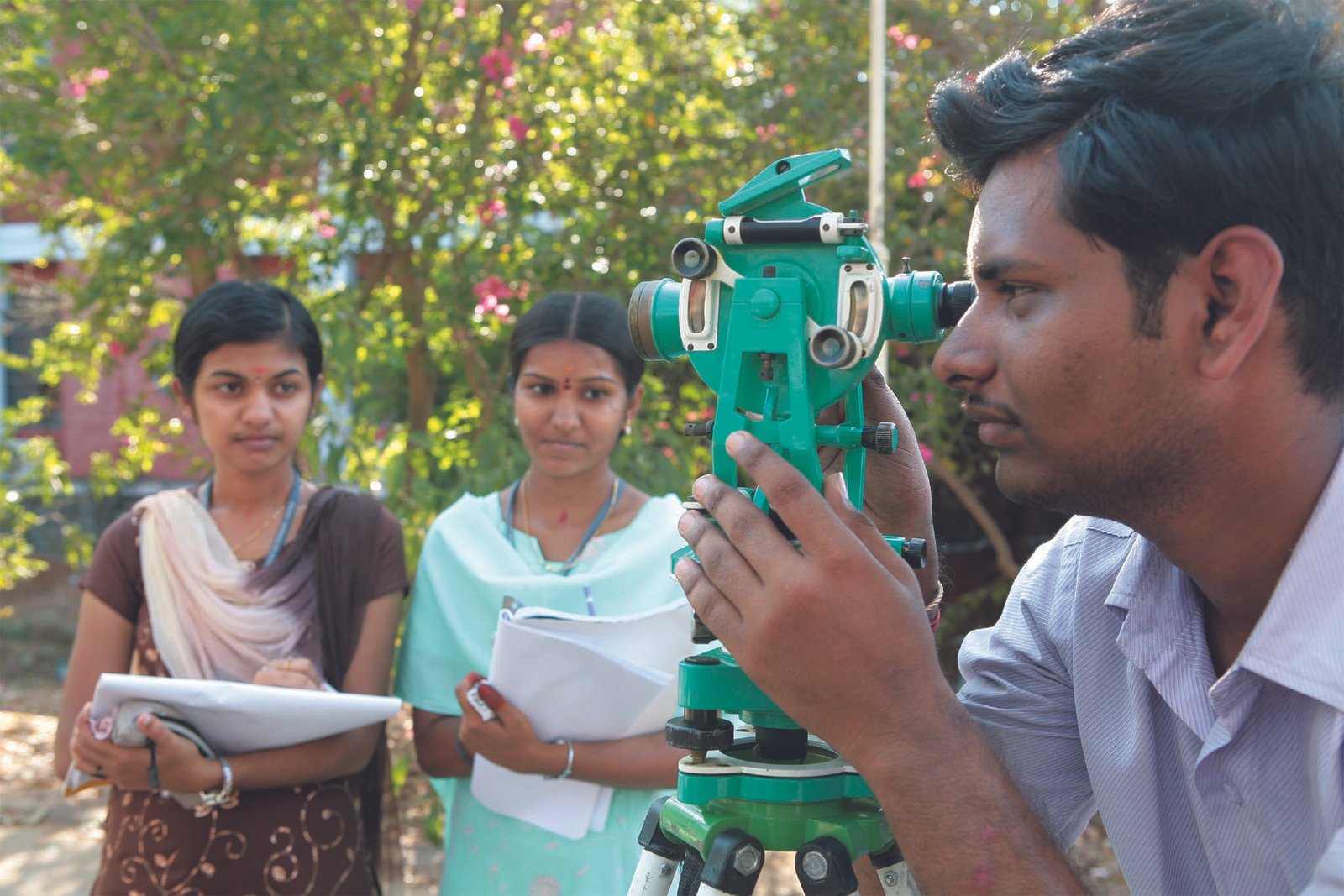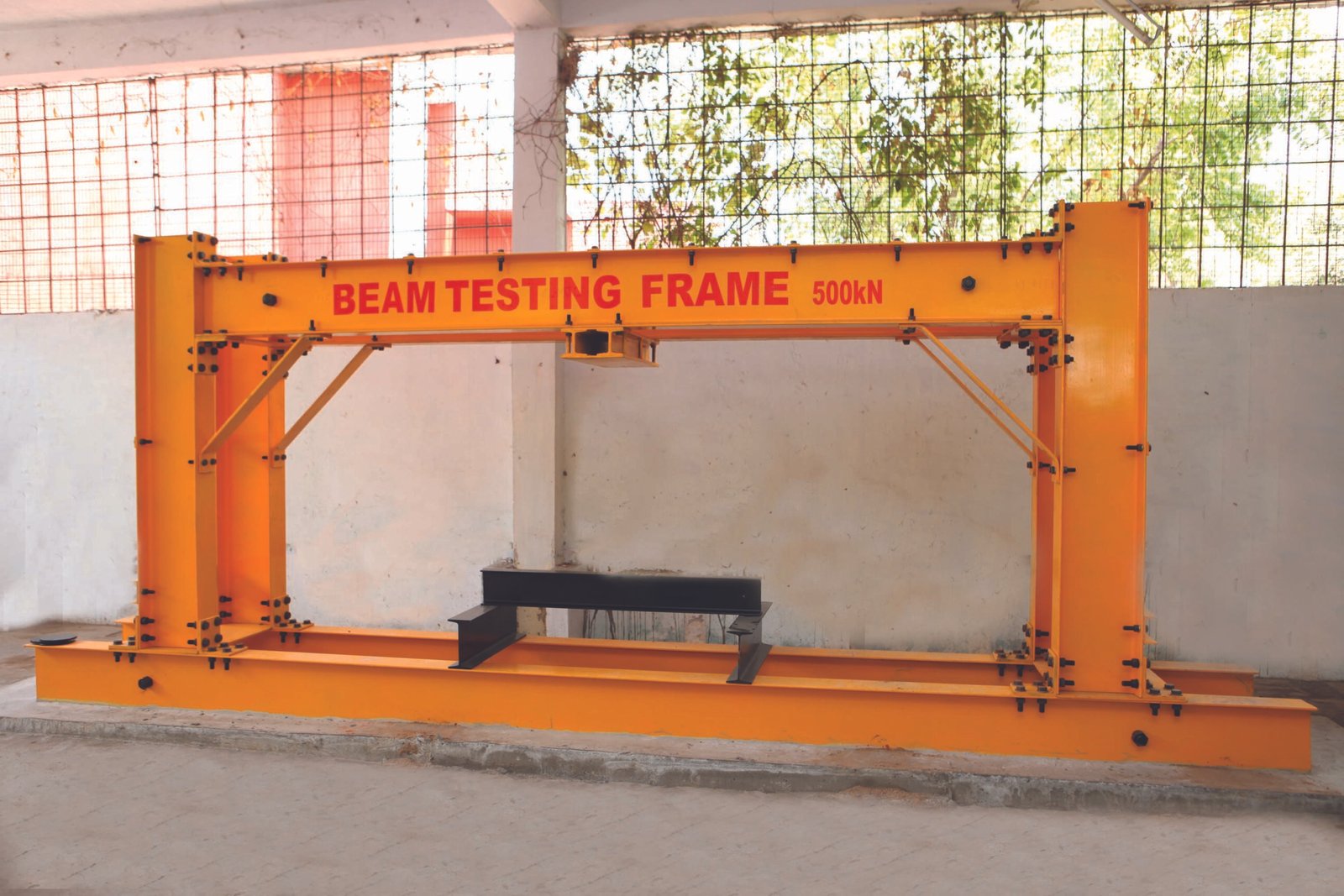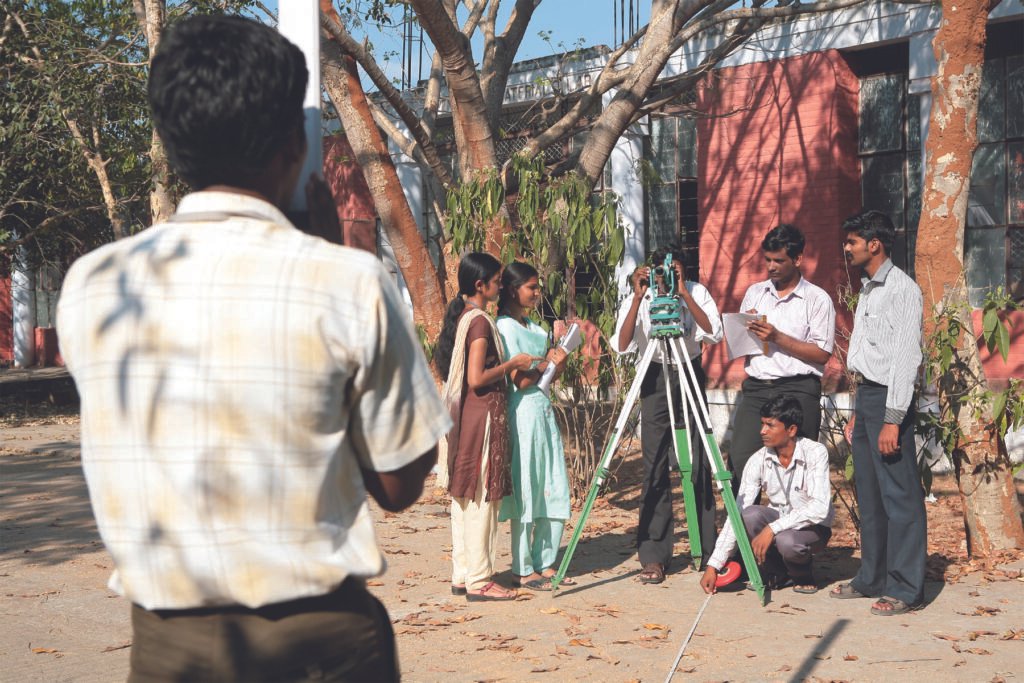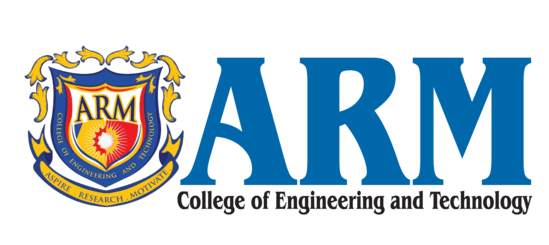Civil Engineering
Department



Welcome
About the Department
Civil engineering plays a vital role in the progress and development of a modern society, for its art and science of designing, constructing, maintaining and managing of infrastructure. The Department of Civil Engineering was started with an intake of 60 students which offers quality engineering education based on a nationally and internationally recognized curriculum prescribed by the affiliating university (Anna University)
The Department is equipped with excellent laboratories provided with state-of-art equipment and experimental facilities. The Department is also having a well-equipped separate CADD lab for the usage of the Civil Engineering students and Staff.

The Department of Civil Engineering pulls out all stops to create outstanding engineers with advanced teaching techniques and learning aids students. Students are not only made experts in technical aspects but also in interpersonal skills, a vital ingredient to excel in the fast-paced world.
VISION:
To produce competent and quality engineers by imparting knowledge, excellence and global perspectives in Civil Engineering to our students and to make them ethically strong professional engineers to build our nation.
MISSION
- To produce outstanding graduates with high technical knowledge to serve the nation.
- To impart value based education.
- To provide solution to the challenges in the field of Civil Engineering.
PROGRAMME OUTCOMES
Engineering Graduates will be able to
1. Engineering knowledge: Apply the knowledge of Mathematics, Science, engineering fundamentals, and an engineering specialization to the solution of complex engineering problems.
2. Problem analysis: Identify, formulate, review research literature and analyze complex engineering problems reaching substantiated conclusions using the first principles of mathematics, natural sciences, and engineering sciences.
3. Design/development of solutions: Design solutions for the complex engineering problems and design system components or processes that meet the specified needs with appropriate consideration for the public health and safety, and the cultural, societal, and environmental considerations.
4. Conduct investigations of complex problems: Use research-based knowledge and research methods including the design of experiments, analysis and interpretation of data, and the synthesis of the information to provide valid conclusions.
5. Modern tool usage: Create, select, and apply appropriate techniques, resources, and modern engineering and IT tools including prediction and modeling to complex engineering
activities with an understanding of the limitations.
6. The engineer and society: Apply reasoning informed by the contextual knowledge to assess societal, health, safety, legal and cultural issues and the consequent responsibilities relevant to the professional engineering practice.
7. Environment and sustainability: Understand the impact of the professional engineering solutions in societal and environmental contexts, and demonstrate the knowledge of, and
need for sustainable development.
8. Ethics: Apply ethical principles and commit to professional ethics and responsibilities and norms of the engineering practice.
9. Individual and team work: Function effectively as an individual, and as a member or leader in diverse teams, and in multi disciplinary settings.
10.Communication: Communicate effectively on complex engineering activities with the engineering community and with society at large, such as, being able to comprehend and write effective reports and design documentation, make effective presentations, and give and receive clear instructions.
11. Project management and finance: Demonstrate knowledge and understanding of the engineering and management principles and apply these to one’s own work, as member and leader in a team, to manage projects
Strength of Materials Laboratory
- Universal Testing Machine
- Torsion testing machine
- Spring Testing Machine
- Impact Testing Machine
- Metallurgical Microscope
- Fatigue Testing Machine
Fluid Mechanics and Machinery
- Kaplan Turbine
- Impulse Turbine
- Francis Turbine
- Hydraulic Flume Apparatus
- Impact on jet on vanes Apparatus
Survey Laboratory
- Total Station (Pentax Make)
- Total Station (Trimble Make)
- GPS Trimble Terra sync software
- GPS Terra sync software
Concrete and Highway laboratory
- Loading Frame- 50T
- Flow Table for cement concrete
- Los Angles Abrasion Testing Machine Compression
- Testing machine (200kN)
- Ductility Test Apparatus for Bitumen
- Marshall stability Apparatus
- Vertical Auto Clave
- Ultrasonic pulse velocity
- Rebound Hammer
- Vibrating Table
- Concrete Pan Mixer
Soil Mechanics laboratory
- Triaxial Shear test Apparatus
- Consolidation Apparatus
- Relative density Apparatus
Environmental Engineering laboratory
- Atomic Absorption Spectrophotometer Ion Analyser.
- Gas Chromatography
- UV-Spectrophotometer. BOD Incubator Auto Clave. Water Quality Analyzer
CADD laboratory
- CADIAN 2008 STRUDS – Network License GT-Strudl – Network License.
o ESR-GSR Network License
Contacts Us
- admin@armenggcollege.com
- 04183203083
- 9710400333
Location
- A R M College of Engineering and Technology, Tiruchi Chennai Hwy, Maraimalai Nagar, Chennai, Tamil Nadu 603209
©2024. ARMCET. All Rights Reserved.
